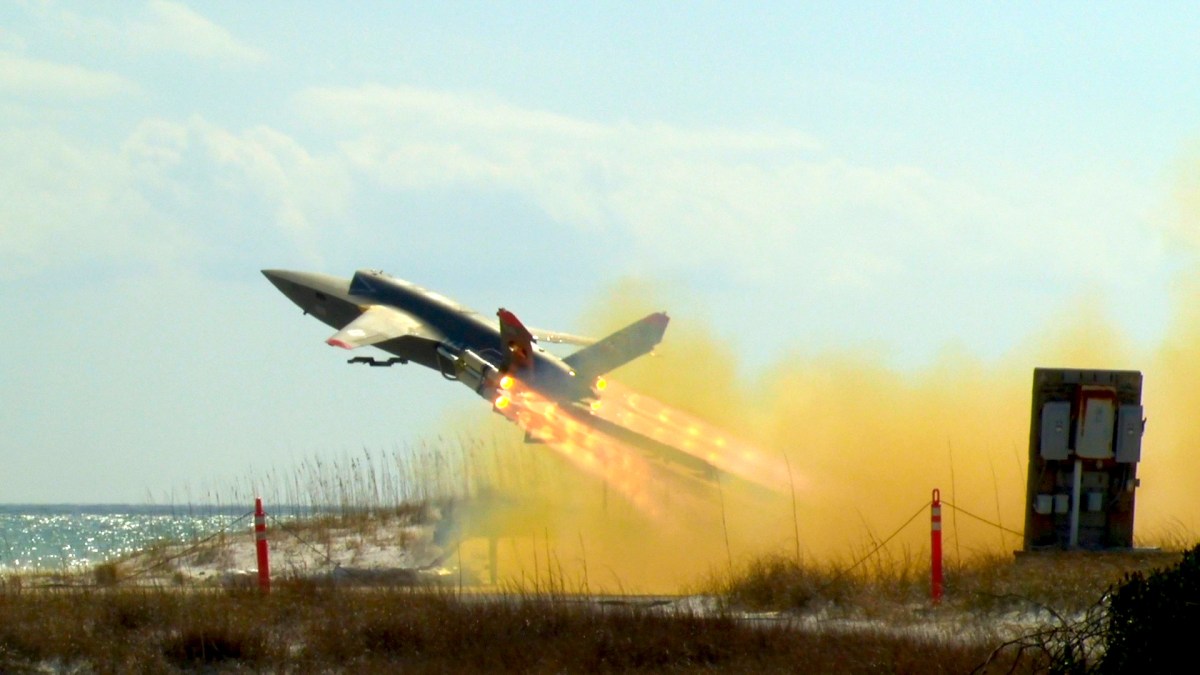Lawmakers set to punt AI weapon systems center decision to Pentagon

The final text of the conference-negotiated fiscal 2025 National Defense Authorization Act would leave it to the head of the Pentagon to determine whether the department should create a new center of excellence focused on AI-enabled weapon systems.
An amendment to a Senate version of the annual defense authorization bill put forth a few months ago would have required the DOD to establish such an organization, but the version of the NDAA hammered out by members of the House and Senate Armed Services Committees and released Saturday night does not.
Instead, the conferenced bill includes a provision for an evaluation of a “federated artificial intelligence-enabled weapon systems center of excellence.”
“The Secretary of Defense shall determine the advisability and feasibility of establishing a center or centers of excellence to carry out the functions … to support the development and maturation of artificial intelligence-enabled weapon systems by organizations within the Department of Defense that … were in effect on the day before the date of the enactment of this Act” and “have appropriate core competencies” relating to the functions outlined in the conferenced bill, according to the text of the legislation.
Those proposed functions include capturing, analyzing, assessing and sharing lessons learned across the DOD regarding the latest advancements in AI-enabled weapon systems, countermeasures, tactics, techniques and procedures, and training methodologies.
They also include facilitating collaboration among the department and foreign partners, such as Ukraine, to identify and promulgate best practices, safety guidelines, standards and benchmarks.
Additionally, the center could be tasked with facilitating collaboration among the Pentagon, industry, academia and nonprofits in the U.S., “including industry with expertise in autonomous weapon systems and other nontraditional weapon systems that utilize artificial intelligence as determined by the Secretary of Defense”; serving as “a focal point for digital talent training and upskilling for the Department” and “providing enterprise-level tools and solutions based on these best practices, standards, and benchmarks”; and “carrying out such other responsibilities as the Secretary of Defense determines appropriate,” according to the bill.
Not later than 180 days after the date of the enactment of the NDAA, the leader of the Pentagon would be required to give the congressional defense committees a report laying out the secretary’s determination regarding whether establishing a center or centers of excellence for AI-enabled weapon systems is advisable and feasible.
If the DOD chief recommends standing up such a center, that person would be required to submit a plan for establishing it and brief lawmakers on that plan.
The negotiated NDAA may be voted on soon by the full House and Senate. Given the timeline for the presidential transition next month, it’s likely that a determination about the center of excellence will be made by the incoming Trump administration.
The release of the bill comes as the DOD is eyeing a variety of AI-boosted platforms and other tools to enhance the U.S. military’s warfighting capabilities.
Last year, the Pentagon updated its guidance for development, fielding and employment of autonomous weapon systems, and it launched a high-profile initiative known as Replicator to accelerate fielding of thousands of “all-domain attritable autonomous” systems to counter China’s military buildup in the Indo-Pacific.






